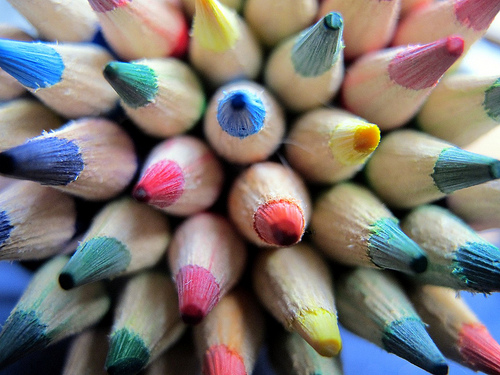7 Ways to Quickly Increase Your Creativity
Today’s guest post is by author Jon Biddle.
The floodgates of creativity open wide when you are young and stay open. Then, as you age, the outlet runs dry. You get stuck in patterns, bad habits that kill that creative flow something gifted you with.
Creativity is a high form of intelligence, and when you are functioning at high levels, it is great to be active. But before you can think creatively, you need to have access to the right high energy. You need to be in a state of flow when the possibilities that come with creativity are present.
Creativity is about having fun and learning to enjoy the process. Creative writing is about experiencing the joy and the feeling of pride when one passes a concept through the word processor or pen and doesn’t become frustrated and depressed as one may do when trying to turn an idea into something tangible.
This last effort is really important. The worst thing you can do is give up after you get the initial spark of motivation.
Everyone gets a spark, but most of us diminish the motivation because we don’t believe in ourselves.
Create a vision of the end product in your head. See yourself on stage with your books, enjoying the joy of creativity as each book shows up to meet your demands, wants, and desires.
Here are 7 ways to quickly increase your creativity:
- Get into the right mind zone. This is one of the first and most important issues. If you do your best creative work on a Saturday, why do it on a Sunday or early Monday when you feel constrained by time?
Analyze which time suits you best. This means evaluating where it works for you and how you’ll carry on. Don’t set yourself up to fail at the first hurdle.
- For your first project, don’t write to your perceived market. It is necessary to create projects that will give us more reasons to feel excited and then to move on. Write what turns you on; write the book that you would want to read.
- Set a time frame. Ask yourself: How much will I be creating in the next 30 days, 60 days, 90 days, or year? Be specific and strict. If you can only write 500 words a day, then only do that. Even 100 hundred words a day in a year equates to 35,200 words, which is a decent-sized novella.
Your writing time is as important as eating, and if you’re managing to watch four to five hours of the box a day, I’m sure your writing goal can be just as achievable.
- Create an environment conducive to creativity. Tear down or simplify the room you write in. Don’t forget to switch off distractions and organize all the knickknacks and papers on your desk; the environment will keep you grounded and creative. If you have last month’s unpaid electric bill in front of you, it’ll dry your creativity up quicker than a man turning up to a date in Crocs … you get my drift?
I have the works of Thomas Hardy and Rudyard Kipling within my peripheries. These are writers that against all odds succeeded and changed the world of literature. When I get stuck or something isn’t flowing right, I reach for one of them, dip into the book, and read. This is my mental Ctrl+Alt+Delete, and the creative door flies wide open again.
- Create with five senses. Our five senses feed our creativity, but we need to utilize those senses for anything to happen fully. Include them in any project that you are working on. I have a candle I call it the “flame of inspiration.” Visually, your space has to be clean, everything in the right place. Have your favorite drink and snack at hand, maybe put some inspiring music on in the background. Your environment impacts your creativity.
- Once you are there and focused in on your project, let it go. Switch off your social media feeds, silence your phone, and make the surrounding people know that this is your time. It will only cause more stress if taken too seriously and the creativity will fade away.
- Take time away and let your mind take off. Even a seasoned athlete will go and chill, spend the day away from the hard work. Go for a walk, relax, notice the birdsong, smell the roses. Watch that film, read that book. Go sit in a cafe and just be. Watch the drama unfold around you, understand how people tick in this safe environment, and emotionally, culturally feed your creativity.
Creativity is a major hidden resource for an exciting lifestyle, something that seems to be lacking in the world right now. Tap into your creativity, and by following these seven tips, you might just be amazed at what you create!
 John Biddle came late to publishing, first publishing traditionally, and hated it. He published his first novel Harvester, a twisted dark tale of a unique and brutal serial killer, Dale Broc. Check out his Criminal Club, where a spotlight is brought to bear on real life serial killers in a fictional short story delivered to your inbox. Visit John at his website or on Facebook.
John Biddle came late to publishing, first publishing traditionally, and hated it. He published his first novel Harvester, a twisted dark tale of a unique and brutal serial killer, Dale Broc. Check out his Criminal Club, where a spotlight is brought to bear on real life serial killers in a fictional short story delivered to your inbox. Visit John at his website or on Facebook.
Featured Photo by Joshua Earle on Unsplash











